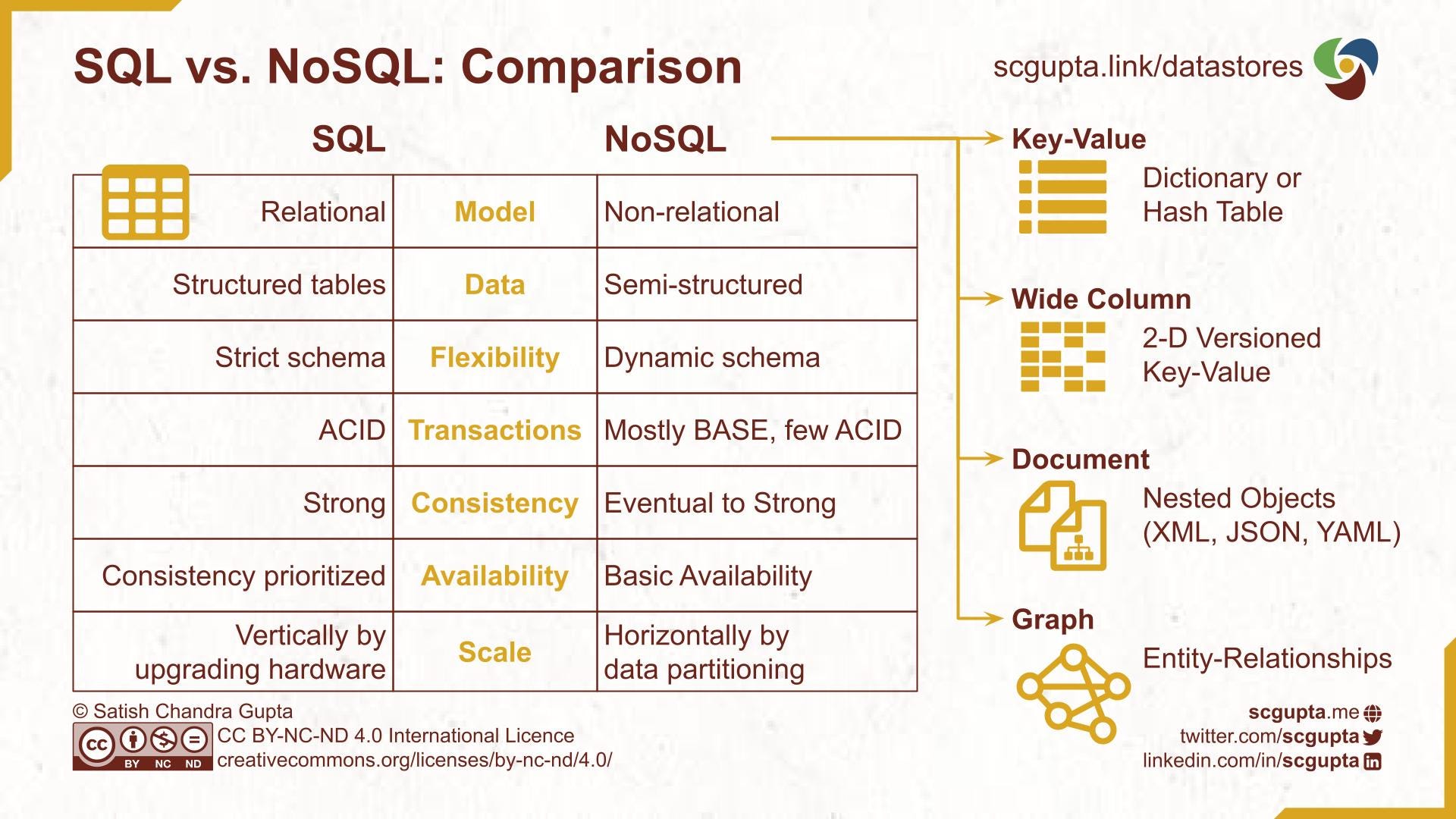
️ SQL vs NoSQL which database to choose English Version
Operating any kind of SQL or NoSQL database is always a complex problem depending on your scale, but there are a lot of cloud-based alternatives, one of those alternatives for storing data is Amazon S3, a project that started as a object storage system, but today has some operations available that can be sufficient for a big number of applications.

Nosql Kullanımı
AWS DynamoDB is a fully managed NoSQL database that can scale in and scale out based on demand. AWS takes care of typical functions including software patching, replication, and maintenance. DynamoDB also offers encryption at rest, point-in-time snapshots, and powerful monitoring capabilities. In a nutshell, it is a great option when you are.

SQL vs NoSQL What’s the best option for your database?
The decision tree covers two scenarios: If you're already using a NoSQL database on premises and would like to consider migrating to a fully managed scalable, highly available AWS NoSQL database service, start your review of our decision tree at Step 1. If you want to modernize your application and are considering a NoSQL database, you can.
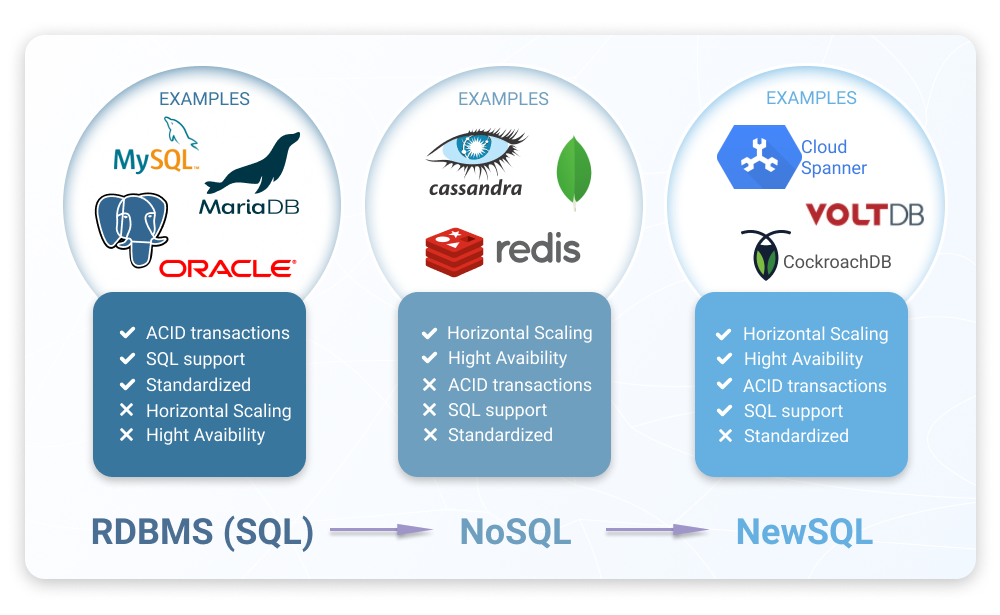
SQL vs NoSQL What’s the Difference Between Them?
AWS provides the broadest selection of managed NoSQL databases, allowing you to save, grow, and innovate faster. With Amazon NoSQL databases, you get high performance, enterprise-grade security, automatic, and instant scalability. The following table lists some of the AWS managed NoSQL database services offered, and their key characteristics:
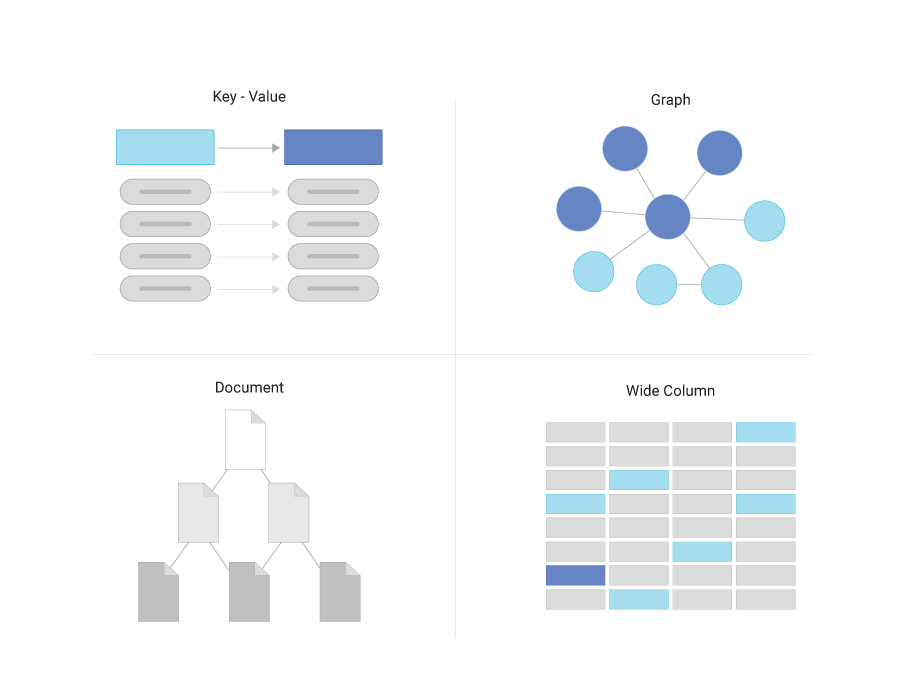
What is AWS NoSQL? Definition & FAQs ScyllaDB
Amazon DynamoDB is a fully managed, serverless, key-value NoSQL database that runs high-performance applications at any scale, with built-in security, continuous backups, and automated multi-region replication.. The top box contains "Amazon S3", the second box contains "AWS Glue Elastic Views", the third box contains "Amazon.
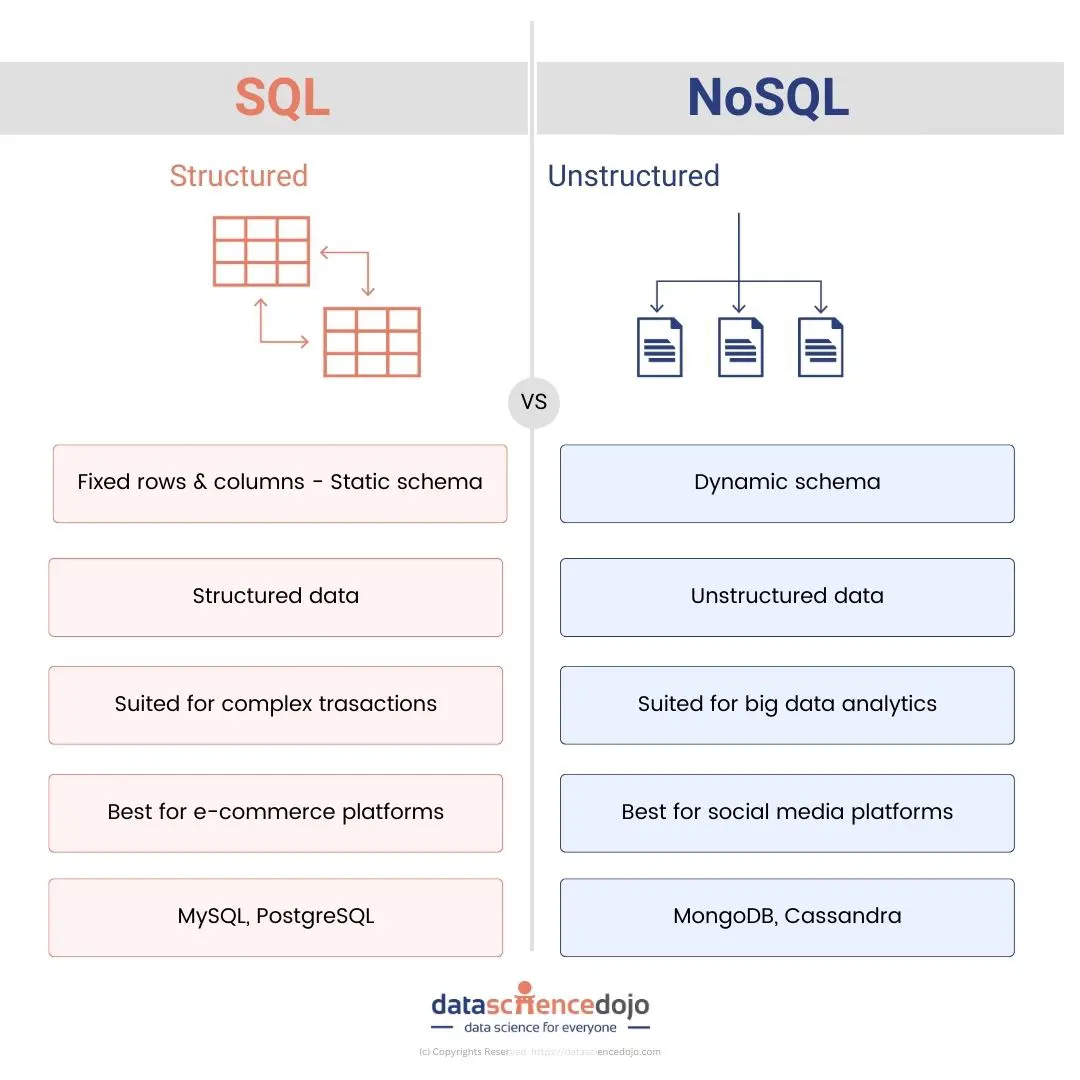
SQL vs. NoSQL Decoding the Database Dilemma for Solutions
NoSQL databases are created with flexible schemas and specific data models designed for building modern applications. NoSQL databases are generally recognized for their functionality, ease of development, and performance at scale. Amazon Web Services (AWS) offers both SQL vs. NoSQL databases designed especially for its emphasis on cloud computing.

Can a AWS S3 used as a SQL/NOSQL Table ? Yes , by using TAGS by
Conclusion. Choosing between NoSQL and SQL databases in AWS depends on your specific requirements and the nature of your application. NoSQL databases offer flexibility, scalability, and high performance for unstructured or semi-structured data. SQL databases ensure data integrity, ACID compliance, and support complex querying.

SQL Vs NoSQL Amazon Aurora Vs Amazon DynamoDB
NoSQL AWS databases can hold large volumes of data while still providing low latency. As part of AWS database offerings, there are six types of NoSQL databases you can select from along with a variety of managed and self-managed database services. These database services are designed to support your cloud-native workloads and smoothly integrate.
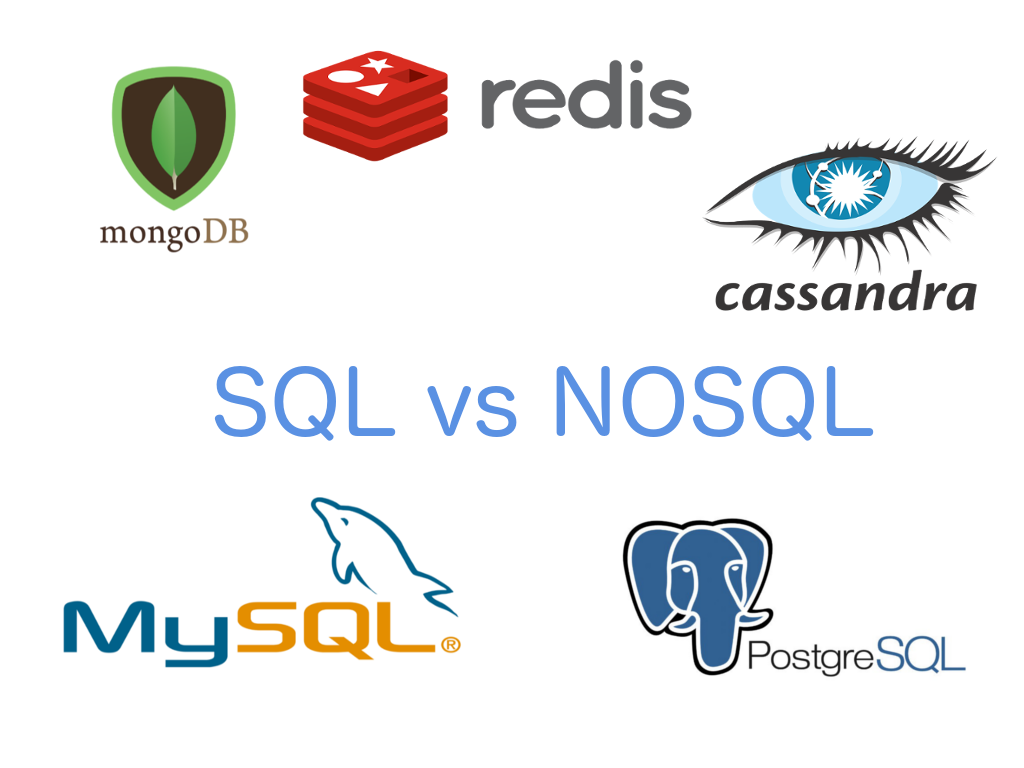
SQL vs NOSQL. Conoce sus diferencias y cuando utilizarlas Mexlike
Click on the S3 object you just upload then click on "Object actions" dropdown from top-right and chose "Query with S3 Select": Configure your input/output settings the way that meets your content's format whether CSV or JSON as well as content type ( Note: JSON is one entry per line without a comma at the end) then you can query your data.
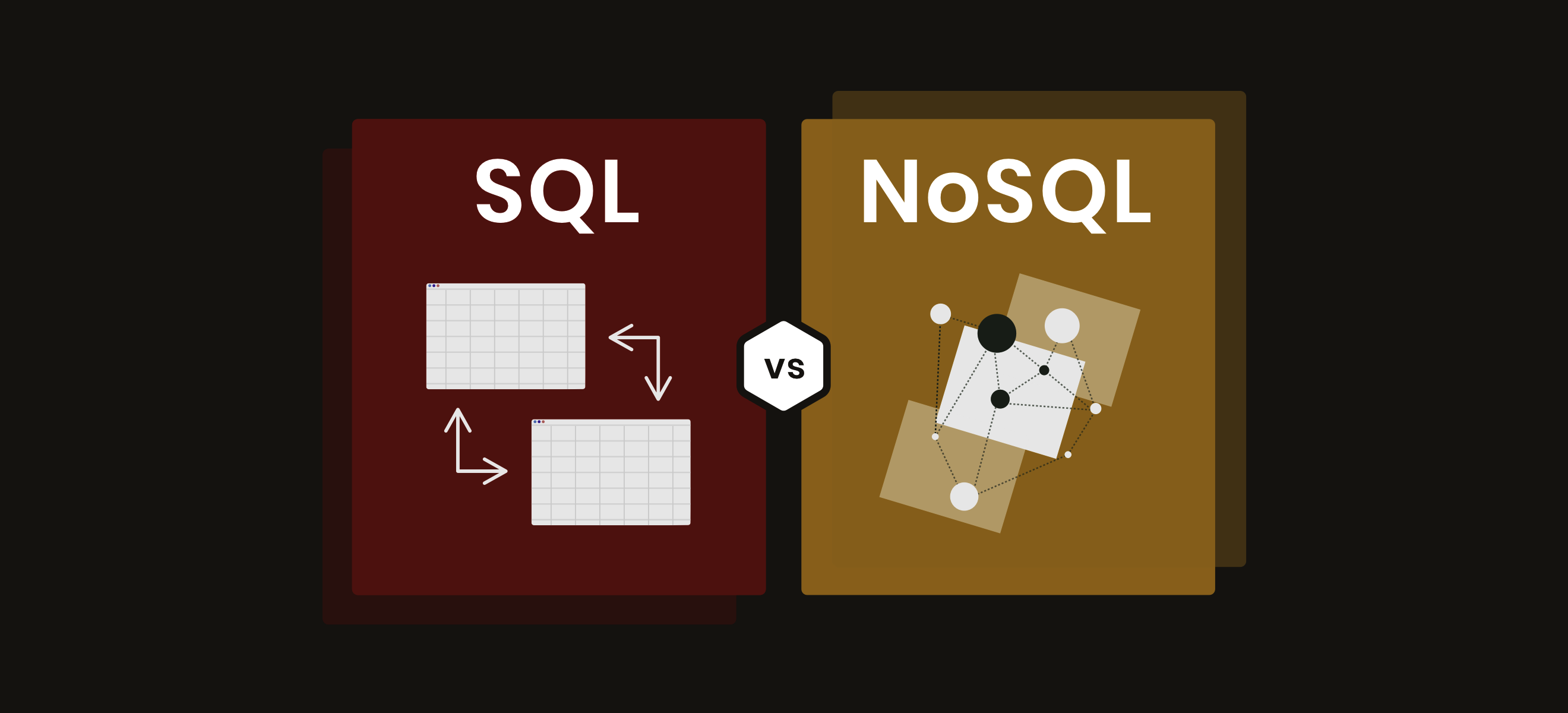
SQL Versus NoSQL What Is the Difference? DataOpsZone
You have endless options on AWS for using different services for persisting your data. This post will give you an introduction to the three most important services in this area. RDS - A Managed SQL Database. DynamoDB - A fully managed NoSQL Database. S3 - Storage for saving larger larger objects (BLOB)
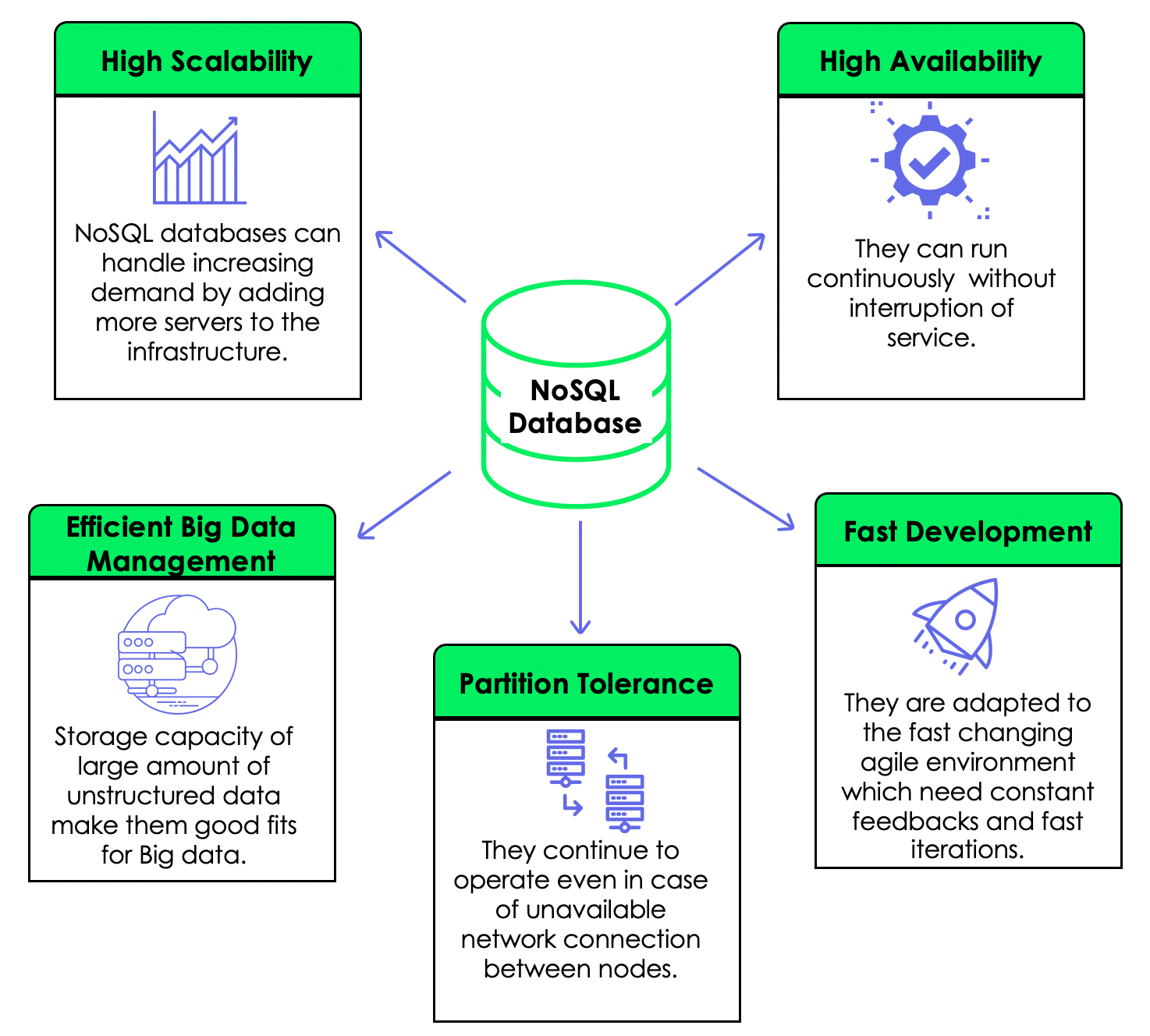
NoSQL Databases Types of NoSQL Databases and How to Use Them DataCamp
At AWS, we recognize that different NoSQL database technologies solve different problems. Consider this AWS Bookstore Demo Application as an example. It contains multiple experiences such a shopping cart, product search, recommendations, and a "top sellers" list. For each of these use cases, the app makes use of a purpose-built database, so.

SQL vs NoSQL What’s the best option for your database? by Kawtar
Choosing an AWS NoSQL Database AWS Whitepaper An example of a document data model AWS offers a specialized document database service called Amazon DocumentDB (with MongoDB compatibility). 3. Wide-column — A wide column data store is a type of NoSQL database that stores data in columns rather than rows, making it highly scalable and flexible.

NoSQL vs SQL Databases Differences, Features & Use Cases
Databases on AWS. AWS has extensive support for both SQL and NoSQL databases, offering a plethora of services from simple hosting to data science solutions. For SQL solutions, Amazon offers Amazon Relational Database Service (RDS), a service that facilitates the process of setting up, maintaining, and scaling relational databases.

Data Lake in AWS A Guide to Build your Data Lake in AWS
AWS offers a specialized document database service called Amazon DocumentDB (with MongoDB compatibility).. Wide-column — A wide column data store is a type of NoSQL database that stores data in columns rather than rows, making it highly scalable and flexible. In a wide column data store, data is organized into column families, which are groups of columns that share the same attributes.

SQL vs NoSQL Difference Between SQL and NoSQL Intellipaat LaptrinhX
Amazon Web Services (AWS) is the biggest cloud platform in the world, with over 200 features. In this. Tagged with aws, sql, programming, guide.. NoSQL database: Some - PartiSQL:. S3 often stores terabytes of JSON, CSV, text, or other unstructured data. AWS Athena is a SQL service to pull that data out of S3 and push it into a.
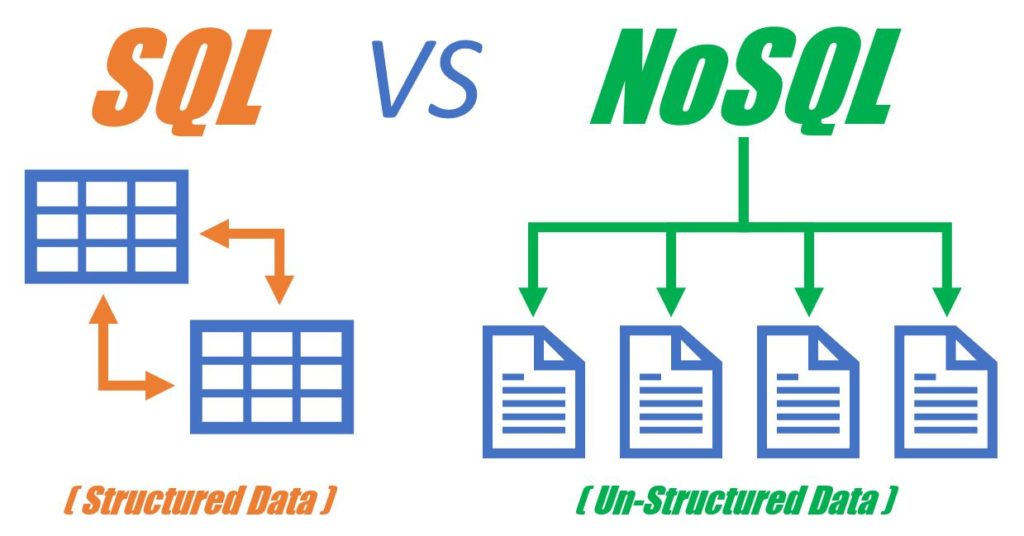
SQL vs NoSQL What’s the Difference? //Go With Code/
Get Started with DynamoDB. A key-value database is a type of non-relational database, also known as NoSQL database, that uses a simple key-value method to store data. It stores data as a collection of key-value pairs in which a key serves as a unique identifier. Both keys and values can be anything, ranging from simple objects to complex.